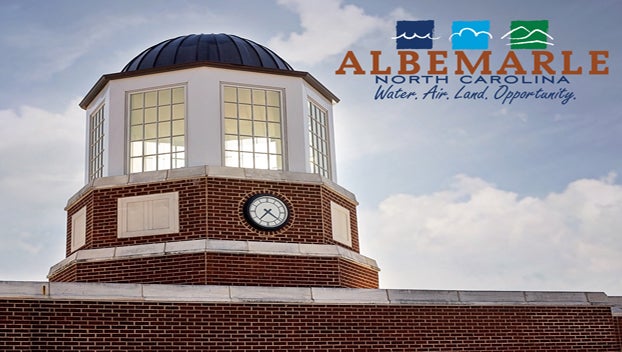Albemarle council discusses how to use second portion of ARPA funding
Published 9:49 am Tuesday, September 13, 2022
|
Getting your Trinity Audio player ready...
|
There was a lengthy discussion during last week’s Albemarle City Council meeting about how to best utilize the second part of American Rescue Plan Act funding the city has received. While this portion totals around $2.6 million, the city has received more than $5.2 million through the ARPA.
The money is intended to help address the impacts of the COVID-19 pandemic and to specifically help communities that have been struggling over the past year and a half to recover. The city received the initial $2.6 million last summer.
The ARPA funds can be spent to assist households, small businesses and nonprofits; offset revenue losses caused by the pandemic; aid impacted industries, such as tourism, travel and hospitality; or make necessary investments in water, sewer or broadband infrastructure.
As part of an ARPA strategic workforce group, consisting of council members and city staff, which has been meeting to discuss potential uses of the money, several spending recommendations were presented before council, including appropriating about $1.4 million to replace radios within the fire and police departments, along with some other non-safety departments.
Motorola is making network communications changes that will impact the operability of radios.
None of the current radios, which were purchased around 2013, will work as of Jan. 1, 2025. The issue of needing to replace the radios was first brought before council in November.
Councilwoman Martha Hughes was adamant that the funding recommended to purchase the new radios instead be focused on larger projects, such as improving the city’s aging water lines.
“We need to look at a bigger picture in how we’re going to spend that money, because this is a one-time deal, we’re not going to get this money again,” she said.
A few months ago, council submitted applications for funding for several capital improvement projects to the North Carolina Department of Environmental Quality. The biggest project, which totals about $22 million, would be to replace the existing 24-inch raw water line from Badin Lake to the U.S. Highway 52 Water Treatment Plant with a new 30-inch water line.
“We’ve got to start somewhere and $1.4 (million) would sure be a nice way to start to approach that,” Hughes said about replacing the raw water line.
Hughes suggested the radios could be replaced by utilizing money from the city’s General Fund. It would cost about $309,000 over a five-year period, including interest, if the city went that route. The city has gone into the General Fund in the past to replace outdated radios.
Using the ARPA money to help with the water and sewer lines would have “a much more bigger impact” than purchasing radios that will need to be updated in another decade, Hughes said.
Mayor Pro-Tem Martha Sue Hall, a member of the ARPA workforce group, agreed with Hughes that the radio replacement should come out of the general fund and instead the city should tackle projects that will impact citizens for years to come.
“We need to use it in a way that folks, when we’re all gone, will be happy that we spent that money and we were being smart doing it,” she said.
Councilman Chris Whitley, also part of the ARPA workforce group, said it was his “personal preference” to fund the radios with ARPA money as opposed to utilizing the General Fund.
“I would feel less pain doing it like this (with ARPA funds) and pulling the band aid off and getting it over with than I would paying on it over five years,” he said.
Council decided to table the discussion until it hears in more detail from LKC Engineering, which has been working with the city to help improve its aging water and sewer infrastructure.
The other recommendations for the ARPA funds include about $900,000 for street maintenance and stormwater, $140,000 for City Hall security improvements and about $100,000 to help with the ongoing King Alleyway revitalization project.
The money has to be spent by Dec. 31, 2024.






